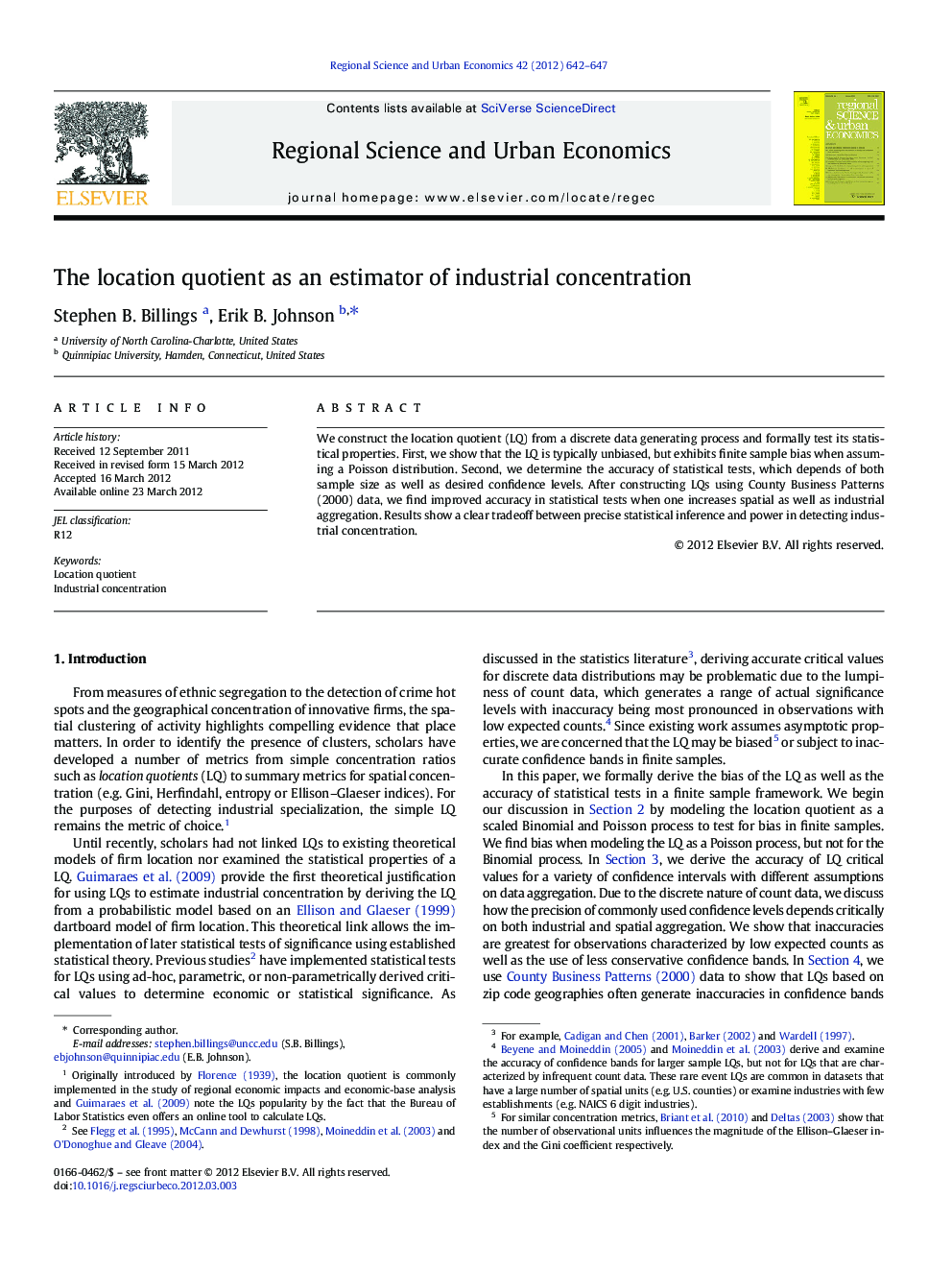| Article ID | Journal | Published Year | Pages | File Type |
|---|---|---|---|---|
| 983732 | Regional Science and Urban Economics | 2012 | 6 Pages |
We construct the location quotient (LQ) from a discrete data generating process and formally test its statistical properties. First, we show that the LQ is typically unbiased, but exhibits finite sample bias when assuming a Poisson distribution. Second, we determine the accuracy of statistical tests, which depends of both sample size as well as desired confidence levels. After constructing LQs using County Business Patterns (2000) data, we find improved accuracy in statistical tests when one increases spatial as well as industrial aggregation. Results show a clear tradeoff between precise statistical inference and power in detecting industrial concentration.
► Examine properties of Location Quotient with finite sample size. ► Location Quotient unbiased as binomial. ► Location Quotient potentially biased as Poisson. ► Examine statistical inference based on Location Quotient. ► Inference may not be appropriate under common data aggregation assumptions.
